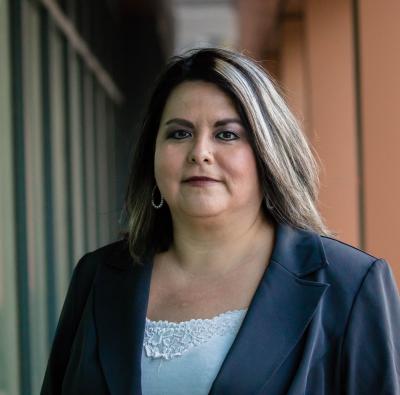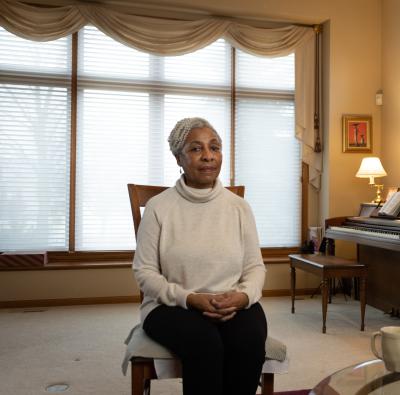Last month, the United States Senate once again failed to advance the Democracy is Strengthened by Casting Light on Spending in Elections (DISCLOSE) Act, vital legislation that would mandate transparency from entities spending money on political ads designed to influence our vote and our government. In the face of this continued impasse, the public...
Secret money in the political process deprives voters of information necessary to make informed electoral choices and makes our electoral system vulnerable to corruption and manipulation. Often used by wealthy special interests to rig the political system in their favor, secret money, also known as dark money, hinders progress on policy issues...
CLC Action has filed suit on behalf of Common Cause Georgia against the Federal Election Commission (FEC) for failing to enforce key pieces of federal election law against the organization True the Vote and the Georgia Republican Party.
In the leadup to the 2021 runoff elections for U.S. Senate in Georgia, True the Vote — a national nonprofit...
Election officials across the country are extraordinarily busy in the weeks leading up to the general election, with many administrative and logistical tasks to complete to ensure that elections in their communities run smoothly and securely.
Yet in many states, election offices are being inundated with frivolous mass challenges to voters’...
The United States Supreme Court depends uniquely on maintaining its perceived legitimacy among the American people as an institution acting based on law, not political preferences. But as the Court embarks on another term in October, its perceived legitimacy has taken a major hit.
One cause of this loss of respect is widespread disagreement with...
Over the last decade, the Stop Trading on Congressional Knowledge (STOCK) Act, through its transparency measures, showed us that members of Congress regularly trade stock despite conflicts of interest and allegations of insider trading.
This week, a bill was introduced in the House of Representatives to eliminate these conflicts of interest by...
Although the 2022 midterm elections are still weeks away, many prospective candidates have already begun planning and laying the groundwork to campaign for office in the 2024 presidential election. Even though no one has formally declared their candidacy, the informal preparatory phase is already well underway.
While potential Democratic...
In the last week, both chambers of Congress have taken significant steps toward updating the Electoral Count Act (ECA), an outdated law from 1887 that provides the primary legal framework for casting and counting Electoral College votes in presidential elections.
These developments are promising, as modernizing the ECA is an urgent priority that...
This installment of our explainer series on “testing the waters” examines how a 2016 presidential candidate, Scott Walker, used a political organization that claims tax-exempt status under Section 527 of the Internal Revenue Code — a “527 organization” — as a one-stop shop for fundraising and campaigning before declaring candidacy.
Running for...
Our democracy works best when every voter can participate. Voting by mail and voting early are processes that help voters do that.
Voting by mail accommodates voters who have disabilities, lack easy access to transportation or are away from home on Election Day; early voting periods prevent lines and crowded polling places and allow voters whose...
Wednesday, September 28 from 1:30 p.m. to 2:30 p.m. Eastern Time.
Join us for a conversation with Campaign Legal Center (CLC) democracy advocates and other special guests to sound the alarm on the U.S. Supreme Court under Chief Justice John Roberts and what its troubling decisions mean for democracy. Together, they'll talk about the upcoming cases...
Several types of entities are commonly used to raise and spend money to influence elections. Keeping track of the main distinctions and the rules governing election financing can be difficult, but it’s also necessary to remain informed and protect voters’ right to know who is attempting to influence their vote and our government.
This has become...
Prospective officeholders increasingly seek to evade campaign finance laws by fundraising and campaigning before they publicly acknowledge their candidacy, while claiming that they are still testing the waters of a potential candidacy.
By taking advantage of the exploratory period intended for individuals looking into whether to run, these...
Embracing false narratives and relying on disinformation about the integrity of our country’s electoral system, partisan actors across the country have pushed to make hand counting the primary method of tabulating ballots this November.
Many of these claims have focused on the reliability of vote tabulators, even though evidence suggests that they...
A bipartisan coalition of members of the U.S. House of Representatives released a letter urging House leadership to introduce a STOCK Act reform bill by the end of September, a huge step toward preventing conflicts of interest and insider trading in Congress and protecting the public’s trust.
The letter comes after nearly two years of Campaign...
As we barrel toward the 2022 midterms, prospective 2024 presidential candidates are already laying the groundwork for their campaigns. Yet none of these contenders has officially declared their candidacy.
When asked if they’re running, most play coy or even deny intending to run, despite engaging in activities that strongly suggest they have such...
Federal campaign finance laws are designed to increase transparency, curtail corruption and the appearance of corruption, and prevent foreign electoral influence.
To accomplish these goals, the Federal Election Campaign Act (FECA) prohibits certain types of political contributions, including contributions from foreign nationals and federal...
Transparency in elections is vitally important for voters to meaningfully participate in the democratic process. Wealthy special interests often run election ads aimed at influencing voters, particularly at key junctures like the weeks leading up to a primary or runoff election.
Voters need to know who is funding these ads so they can weigh...
Campaign Legal Center (CLC) filed a friend-of-the-court brief in the Arizona Supreme Court to try to ensure that Arizonans’ voices are heard when it comes to the issues that will directly impact their lives. The brief aims to protect the First Amendment rights of those who gather and sign petitions to place an initiative on the ballot.
The...
This week, Campaign Legal Center (CLC) is representing Utah voters in court to oppose the Utah Legislature’s attempt to prevent the plaintiffs’ lawsuit challenging Utah’s gerrymandered congressional map from moving forward.
In 2018, Utah voters passed a bipartisan citizen initiative called Proposition 4 (Prop 4), also known as Better Boundaries...
Two nonpartisan civic engagement organizations, the League of Women Voters of Missouri (LWVMO) and Missouri State Conference of the National Association for the Advancement of Colored People (Missouri NAACP), filed a lawsuit challenging several parts of a new anti-voter law in Missouri.
The plaintiffs are represented by the Campaign Legal Center...

